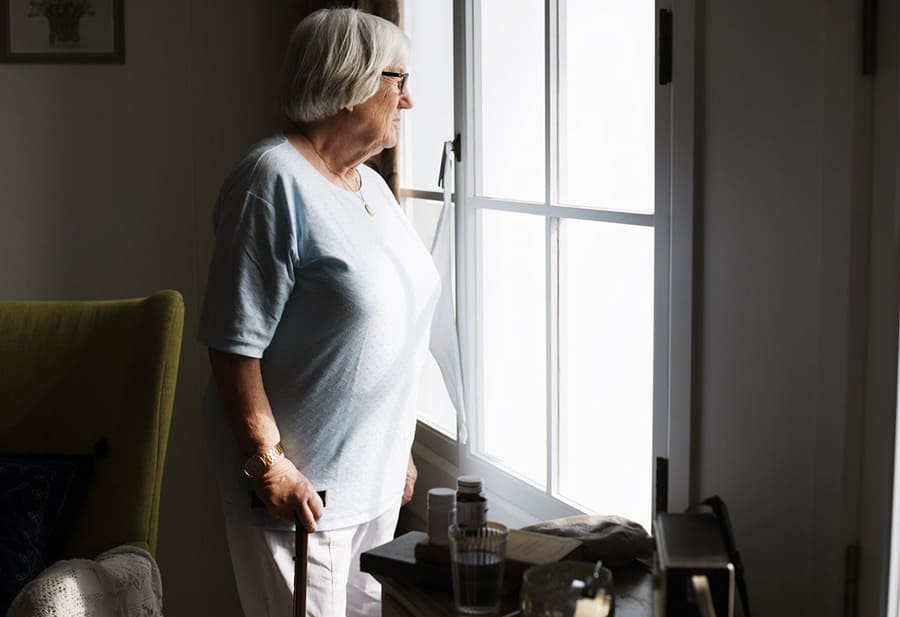New supported housing guidance to improve standards for vulnerable people in the UK

The UK Government has published a new National Statement of Expectations (NSE) for supported housing, which aims to help elderly and disabled people live more independently in better quality accommodation.
Announced by Kelly Tolhurst, Minister for Rough Sleeping and Housing, the government will also be investing £3 million for supported housing pilots in priority areas.
This forms part of new measures to improve standards and quality in supported housing in the UK.
The £3 million investment will fund pilots in five areas – Birmingham, Hull, Blackpool, Bristol and Blackburn – to improve quality, enforcement, oversight and value for money in supported housing, focusing on short-term supported accommodation. The supported housing pilots will run until the end of March 2021.
These pilots will involve collaborative working between local partners and will carefully test different approaches to greater oversight of the sector and how higher standards could be enforced. The pilots are intended to improve quality of non-commissioned provision in priority areas.
In addition, the new NSE guidance sets out what the government expects to see in standards, quality and value for money in supported housing and how this can be achieved by bringing together best practice across the sector.
Kelly Tolhurst, Minister for Rough Sleeping and Housing said: “Providing good quality homes to people who have been homeless, or who are unable to live independently, is fundamental to our support for vulnerable people.
“I know that most supported housing providers already provide a good service and it is right that we expect standards to be high. My statement today sends a strong message to providers that don’t meet our benchmark that they need to shape up.
“The pilots we are funding will explore different approaches to supported housing, to further raise the quality of service across the country.”
In supported housing, accommodation is provided alongside care, support or supervision to help people live as independently as possible in the community.
Supported housing provides homes for some of the most vulnerable people in the country. The vast majority is for older residents, but it also serves people from other vulnerable groups, such as those with disabilities or reduced mobility, autistic people with a support needs and people with mental ill health.
Kate Henderson, Chief Executive of the National Housing Federation, added: “We are glad to see the government taking this important step to set clear expectations for standards in supported housing. The National Statement of Expectations demonstrates the value of supported housing and reflects our close work with the government, as well as our members – the housing associations which provide most of the supported housing in this country.
“We also welcome the funding for pilots, which will provide an opportunity to review how we can ensure these homes and services are of high quality, which housing associations are absolutely committed to.
“Supported housing plays a vital role in our society, ensuring that thousands of people have the home and support they need to live independent and healthy lives. We must continue to invest in it and develop it, including building more supported housing to help more people access these desperately needed services.”
The National Statement of Expectations (NSE) has been developed in collaboration between the Ministry of Housing, Communities and Local Government (MHCLG) and the Department for Work and Pensions (DWP) with input from local councils and the supported housing sector.
The guidance focuses on the accommodation element of supported housing only, but organisations are encouraged to take steps to ensure that any accompanying support services are of a good standard and meets the needs of residents.
Drawing on expertise and best practice examples from across the sector, the standards set out recommendations for planning, commissioning and delivering supported housing.
The guidance has been designed to apply to all supported housing to the greatest extent possible; however not all expectations will be appropriate to every client group, scheme type or provider, the government highlights.
The national standards suggest that local councils consider implementing oversight arrangements to support joined-up working between partners and deliver on planning and commissioning. In addition, the guidance recommends that local authorities carry out an accommodation needs assessment across all groups of people with a support or a care need.

